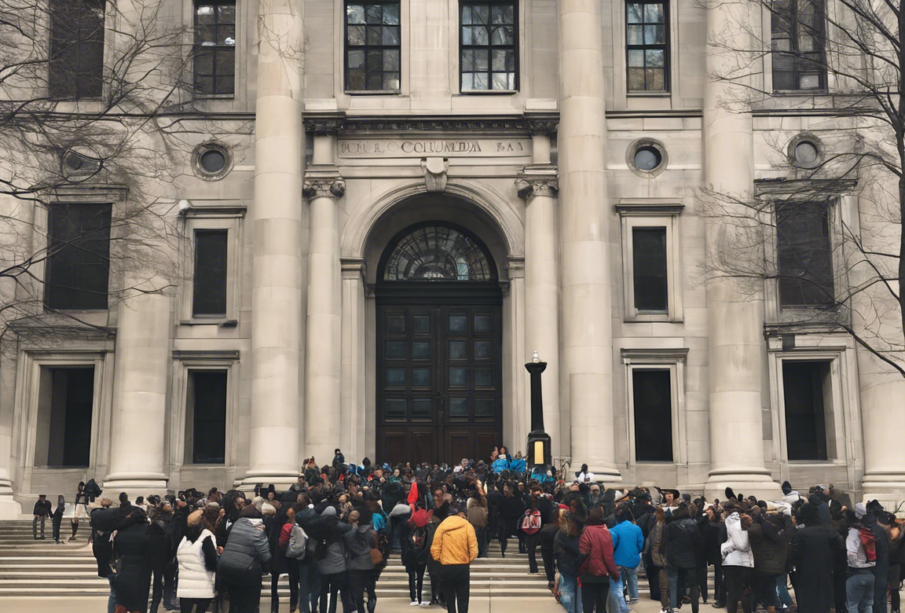Columbia Faculty Organize Walkout Protest

On March 15, 2022, faculty members at Columbia University organized a walkout protest to demand better working conditions and to show solidarity with student protesters calling for changes in university policies. The walkout was part of a broader movement seeking to address issues of racism, sexism, wage disparities, and lack of support for marginalized communities within the university.
Importance of the Walkout Protest
The walkout protest was significant for several reasons:
1. Demand for Equity and Inclusion
Faculty members at Columbia University have long advocated for greater equity and inclusion on campus. The walkout was a visible demonstration of their commitment to creating a more diverse and inclusive academic community.
2. Support for Student Activism
The walkout also served as a show of support for student activists who have been pushing for changes in university policies, including divestment from fossil fuels, campus policing reform, and increased mental health support.
3. Strengthening Faculty Solidarity
By coming together to participate in the walkout, faculty members strengthened their solidarity and emphasized the importance of collective action in creating institutional change. The protest provided a platform for faculty to voice their concerns and stand united in the face of shared challenges.
Demands of the Walkout Protest
During the walkout, faculty members outlined several key demands aimed at improving working conditions and fostering a more inclusive campus environment. These demands included:
- Equitable Pay: The call for equal pay for all faculty members, regardless of race, gender, or background.
- Diversity and Inclusion: Increased efforts to recruit and retain faculty from underrepresented groups.
- Transparency: More transparency in university decision-making processes, particularly regarding budget allocations and resource distribution.
- Support for Marginalized Communities: Enhanced support for marginalized communities on campus, including increased access to resources and services.
Next Steps
Following the walkout protest, faculty members at Columbia University are planning to continue their advocacy efforts through ongoing dialogue with university administrators, petition drives, and collaboration with student groups. The goal is to effect positive change that will benefit the entire campus community and create a more inclusive and equitable academic environment.
Frequently Asked Questions (FAQs)
1. What inspired the faculty walkout protest at Columbia University?
- The walkout was inspired by ongoing concerns related to equity, inclusion, and working conditions at the university. Faculty members sought to create a visible demonstration of their commitment to addressing these issues.
2. Were students involved in the walkout protest?
- While the walkout was primarily organized by faculty members, students were encouraged to participate and show their support for the demands being made by faculty.
3. Did the walkout have any immediate impact on university policies?
- While the walkout itself may not have led to immediate policy changes, it served as a catalyst for ongoing discussions and advocacy efforts aimed at promoting institutional change.
4. How did the university administration respond to the walkout protest?
- The university administration issued a statement acknowledging the concerns raised by faculty members and committing to continued dialogue to address those issues.
5. What are some long-term goals of the faculty protest movement at Columbia University?
- Long-term goals of the protest movement include sustained advocacy for equity and inclusion, policy reforms, and institutional changes that promote a more diverse and supportive academic environment.

